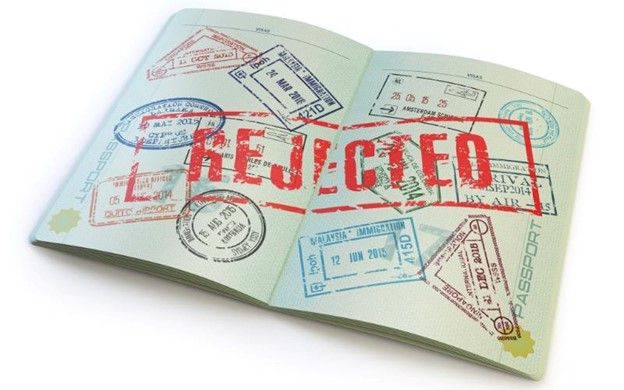Facing a visa refusal can be a daunting experience for anyone aspiring to move to Canada. Whether it’s a tourist visa, study permit, or work visa, a refusal can hinder your plans significantly. A Canadian immigration lawyer can be instrumental in resolving a Canada Visa Refusal. This article delves into how an immigration lawyer can help, steps to take after a refusal, and answers frequently asked questions to guide you through the process.
How a Canadian Immigration Lawyer Can Help Resolve Visa Refusal
1. Understand the Reason for Refusal
The first step a lawyer will take is to understand why your visa application was denied. The refusal letter from IRCC (Immigration, Refugees and Citizenship Canada) outlines specific reasons. An immigration lawyer will meticulously analyze these reasons to identify any errors or areas that need strengthening.
2. Review and Gather Documentation
An immigration lawyer will help you gather the necessary documentation to address the issues raised in the refusal letter. This may include additional financial statements, proof of ties to your home country, or other relevant documents.
3. Correct Inaccurate Information
If your application was rejected due to inaccuracies or inconsistencies, a lawyer will ensure that the reapplication has accurate, consistent, and well-documented information.
4. Prepare a Solid Immigration Application
An immigration lawyer will help prepare a more robust application by addressing all the issues highlighted in the refusal letter. They will provide guidance on improving your documentation and ensuring all necessary information is included.
5. Draft a Detailed Cover Letter
A lawyer can draft a detailed cover letter explaining how the new application addresses the reasons for the previous refusal. This letter will highlight any additional documents and provide a clear explanation of your intentions and plans.
6. Provide Evidence of Changes in Circumstances
If there have been significant changes in your circumstances since your last application, such as a new job, improved financial situation, or additional travel history, your lawyer will help you provide evidence of these changes to strengthen your case.
7. Appeal the Decision
In some cases, an immigration lawyer can file an appeal or request a judicial review of the visa refusal decision. They will represent you in court and provide legal arguments to overturn the refusal.
Frequently Asked Questions (FAQs)
1. What is a Canadian Immigration Lawyer?
A Canadian immigration lawyer is a legal professional who specializes in immigration law. They provide advice, guidance, and representation to individuals seeking to immigrate to Canada or facing immigration-related issues, including visa refusals.
2. How long does it take to process a visa refusal appeal?
The processing time for an appeal Canada visa refusal varies depending on the complexity of the case and the type of appeal. It can take several months to over a year. An immigration lawyer can provide a more accurate estimate based on your specific situation.
3. What documents are required to reapply for a visa after refusal?
Key documents include a valid passport, completed application forms, proof of financial support, a letter of explanation, proof of ties to your home country, and any other documents specified by the visa office. Your lawyer will guide you on the specific documents needed to strengthen your reapplication.
4. Can I reapply for a visa without a lawyer after a refusal?
Yes, you can reapply for a visa without a lawyer. However, an immigration lawyer’s expertise can significantly increase your chances of success by ensuring that all issues from the previous refusal are addressed and that your new application is comprehensive and well-documented.
5. How can I improve my chances of getting a visa after a refusal?
To improve your chances, ensure all documentation is complete and accurate, provide strong evidence of financial stability and ties to your home country, clearly articulate your purpose of visit or study, and maintain an honest and transparent application. Consulting with an immigration lawyer can further enhance your application.
6. Do I need an interview for a visa reapplication after a refusal?
An interview is not always required for a visa reapplication. However, the visa officer may request an interview if they need additional information or clarification regarding your application. Your lawyer can help you prepare for the interview if needed.
7. What are my options if my visa is repeatedly rejected?
If your visa is repeatedly rejected, consider seeking legal advice from an immigration lawyer. They can help review your application, identify weaknesses, and advise on how to address them effectively. In some cases, they may recommend filing an appeal or requesting a judicial review.
8. Can a rejected visa impact future applications?
Yes, a rejected visa can impact future applications. It is essential to address the reasons for the previous rejection and ensure that your new application is stronger and more comprehensive. An immigration lawyer can help you navigate this process effectively.
9. How much does it cost to hire an immigration lawyer?
The cost of hiring an immigration lawyer varies depending on the complexity of the case and the lawyer’s experience. It is advisable to discuss fees and payment plans during the initial consultation to ensure transparency.
Conclusion
Resolving a Canadian visa refusal can be a complex and challenging process. A Canadian immigration lawyer can provide invaluable assistance by understanding the reasons for refusal, gathering necessary documentation, and preparing a stronger application. By addressing all issues and seeking professional guidance, you can significantly improve your chances of successful reapplication. If you face a visa refusal, consider consulting with an immigration lawyer, such as those at Arnika Visa, to navigate the complexities of the process and achieve your immigration goals.
